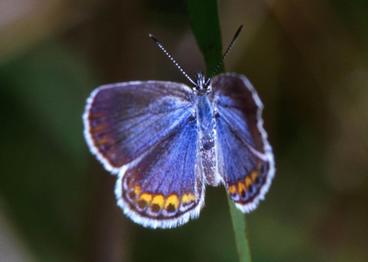
The following are strategies related to vulnerability assessment that are included in the Midwest Climate Adaptation Science Center's 2023-2026 Science Agenda.
- 1.1. Assess the effects of extreme rainfall on at-risk fish, wildlife, ecosystems, and cultural resources.
- 1.2. Identify aquatic fish, wildlife, and ecosystems vulnerable to the impacts of climate on water quality and quantity.
- 1.9. Identify fish, wildlife, and ecosystems vulnerable to variability in precipitation and novel drought conditions.
- 2.2. Assess the vulnerability and adaptive capacity of boreal wildlife.
- 2.4. Determine the effects of variability in winter conditions on fish, wildlife, and ecosystems.
- 3.7. Assess and predict changes in future abundance and distribution of high-value fish species and at-risk aquatic organisms.
- 4.5. Assess climate-driven changes in the abundance and distribution of priority wildlife species.
- 4.8. Evaluate the effects of climate-induced changes in land use on aquatic and terrestrial fish, wildlife, and ecosystems.
- 4.9. Evaluate the social and economic effects of climate change on hunting, gathering, fishing, and wildlife viewing opportunities, outdoor recreation, and Tribal livelihoods.
- 4.10. Determine climate vulnerability in the non-breeding season for priority wildlife (e.g., migratory species).
- 5.6. Identify and assess the risks of laws, policies, regulations, and practices that are maladaptive or exacerbate the effects of climate change on fish, wildlife, and ecosystems.
Read the full Science Agenda.
